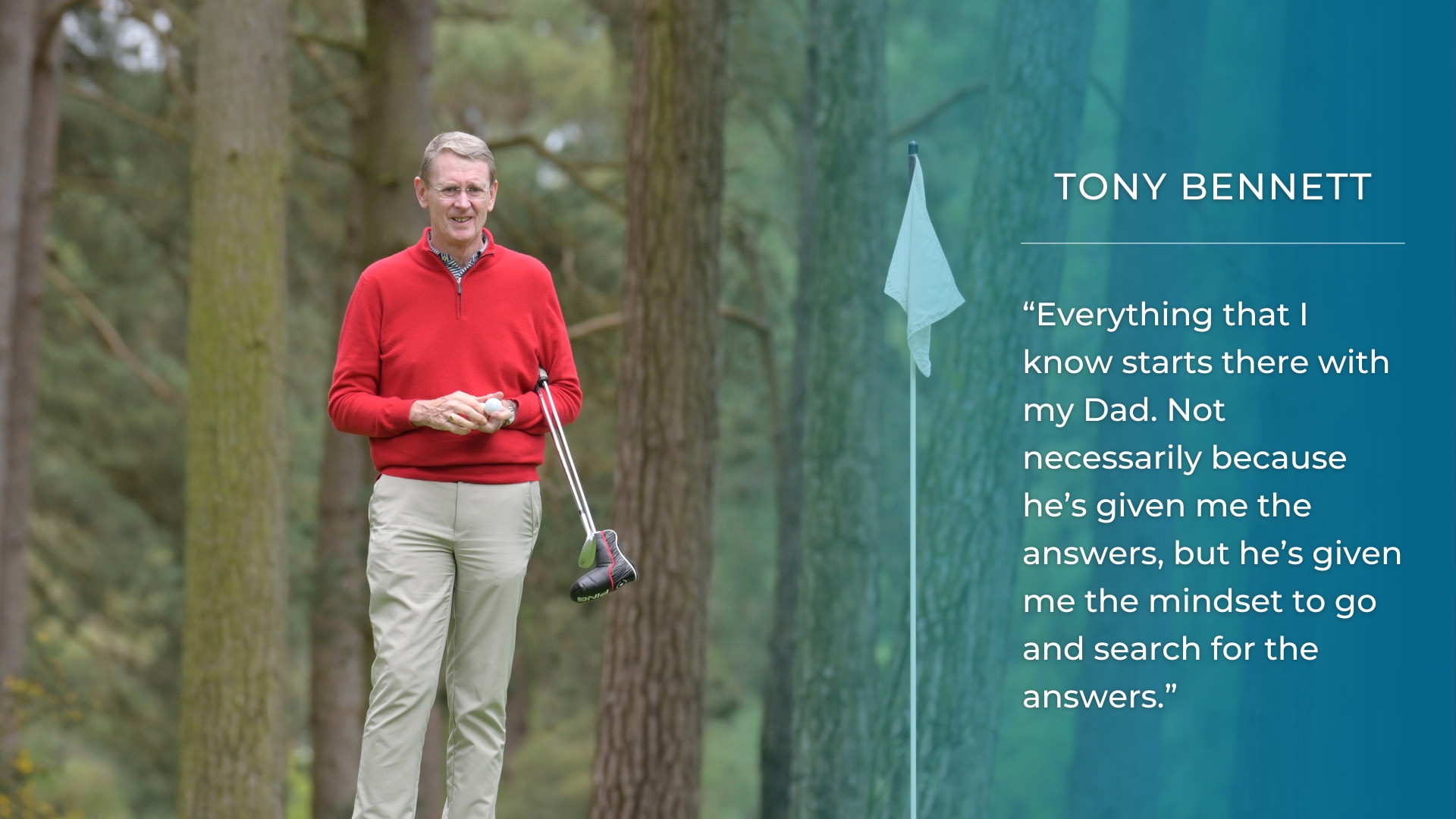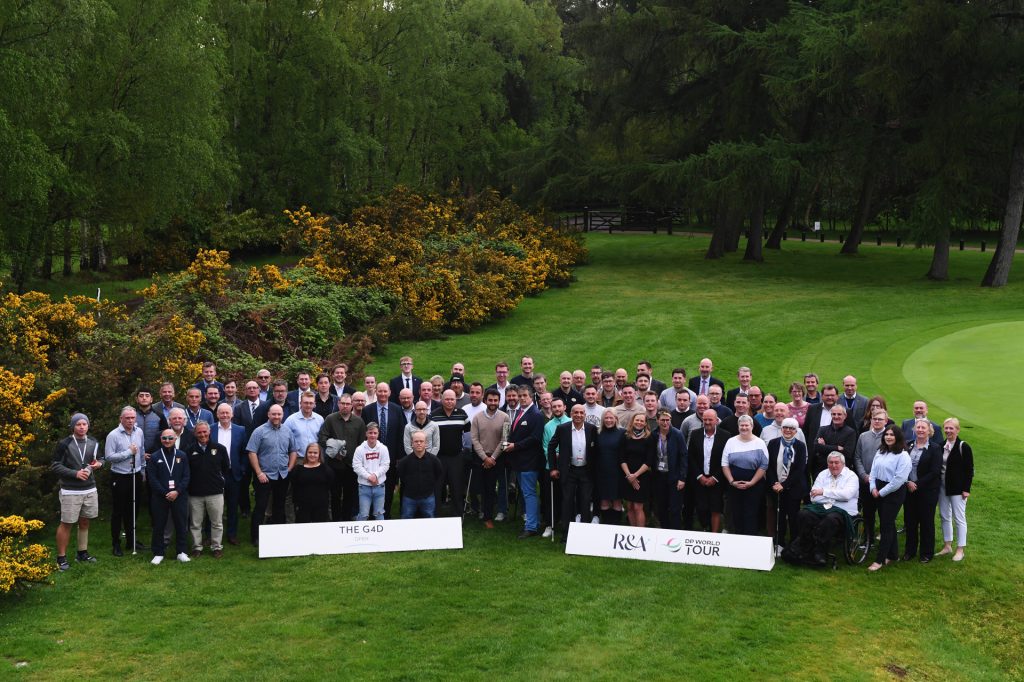
For people who have never tried golf, there are many perceived barriers to joining in. For those with a disability, these perceptions may well be stronger still.
But they may be interested to discover their route to the fresh air and natural surroundings of a golf course – and to playing an absorbing game with proven health benefits – is now becoming more accessible.
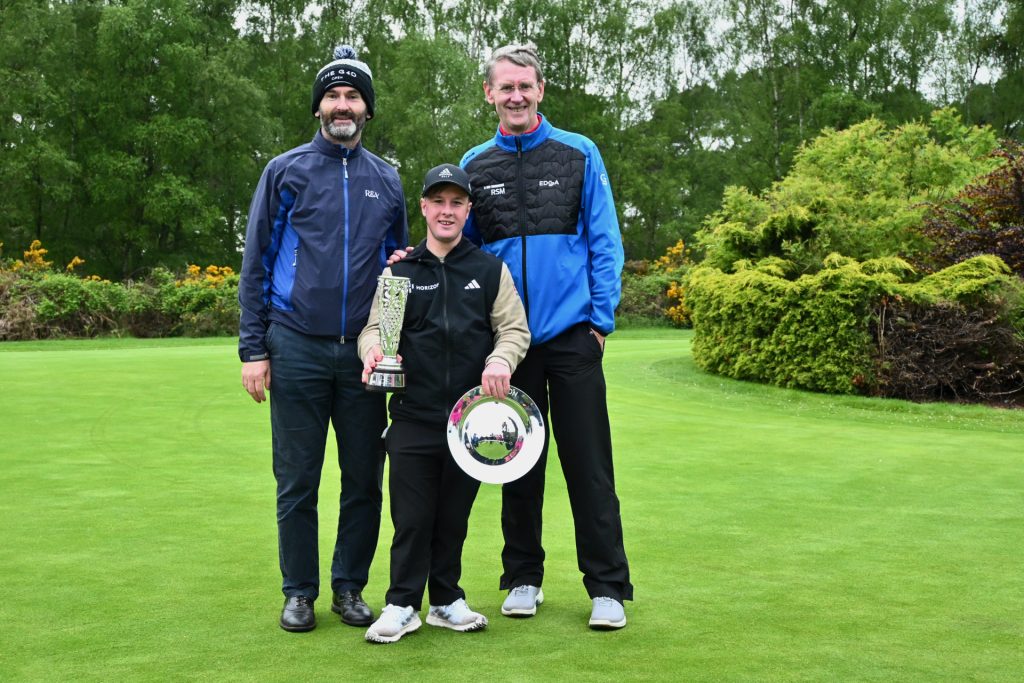
Certainly, the not-for-profit organisation EDGA can back up the above sales pitch. EDGA represents 39 countries and is looking to encourage 500,000 new golfers with a disability to enjoy the game.
Leading this pitch since 2014 is Tony Bennett, the volunteer President of EDGA, head of a body which advises the most influential of the world’s golfing organisations on everything ‘G4D’ (golf for the disabled). Because of Tony’s background in the game and unique knowledge of golf development, he must be as well-placed as anyone to give good answers on the ‘why’ and ‘how’ the game can enhance key aspects of our lives.
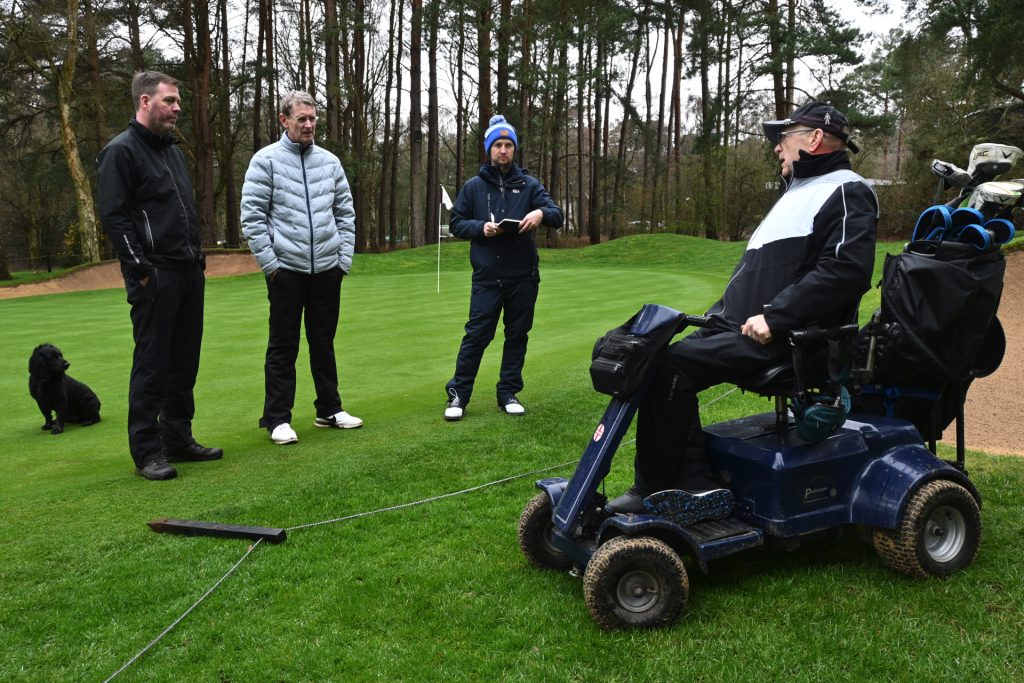
Tony says: “They may be easy questions to answer when you know golf and its value as a healthy game, but harder for people new to golf to understand; though golf can actually be a highly inclusive sport, its culture has all too often been seen as exclusive, something we are all working hard to change.
“For the individual with a disability, golf can be a fantastic game. Many of our players who have a serious impairment or medical condition will tell you that golf has made a significant impact in their lives: the exercise, the confidence of learning a new skill, perhaps feeling stronger and making new friends. Looking a little wider, 15% of the world is disabled. It’s a massive potential market for the golf industry, but this all relies on the ability of all in golf to welcome such players and make them valued customers. Everyone benefits if we can make this happen.”
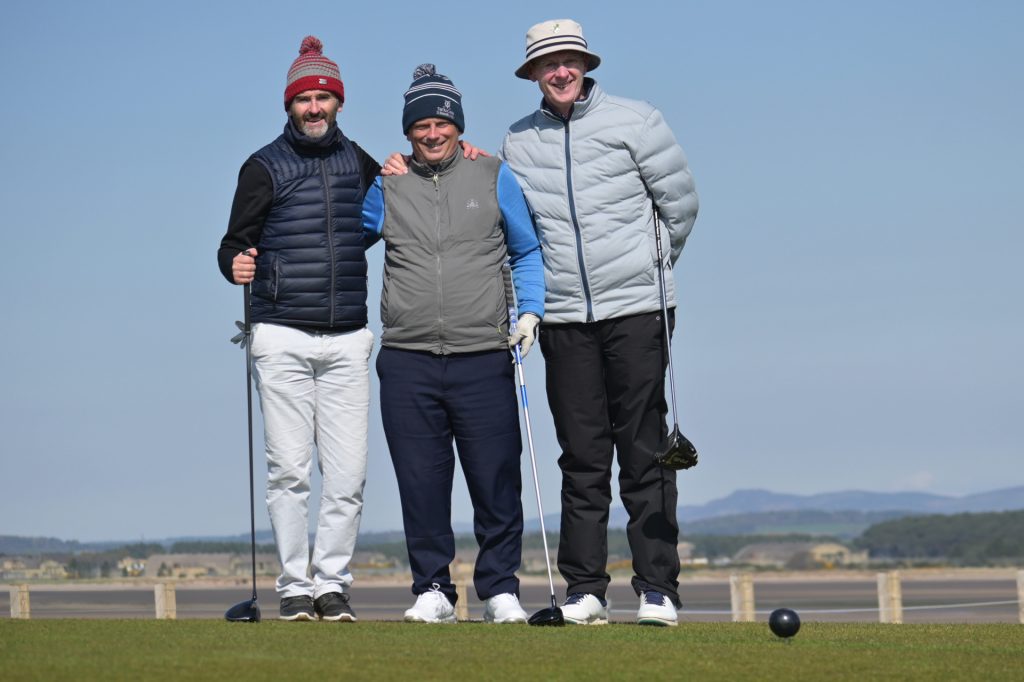
Under Bennett’s steering EDGA, alongside carefully chosen partners, has led in the development of G4D to help any new golfer to “sample” (try), “participate” (play on a course) and/or compete (take your new skill as far as you can in tournaments).
“This pathway is very important,” explains Tony. “We are helping our member nations to have everything in place to offer that journey from very first chips and putts, to fun, social golf, to taking your golf as far as you like in competition.”
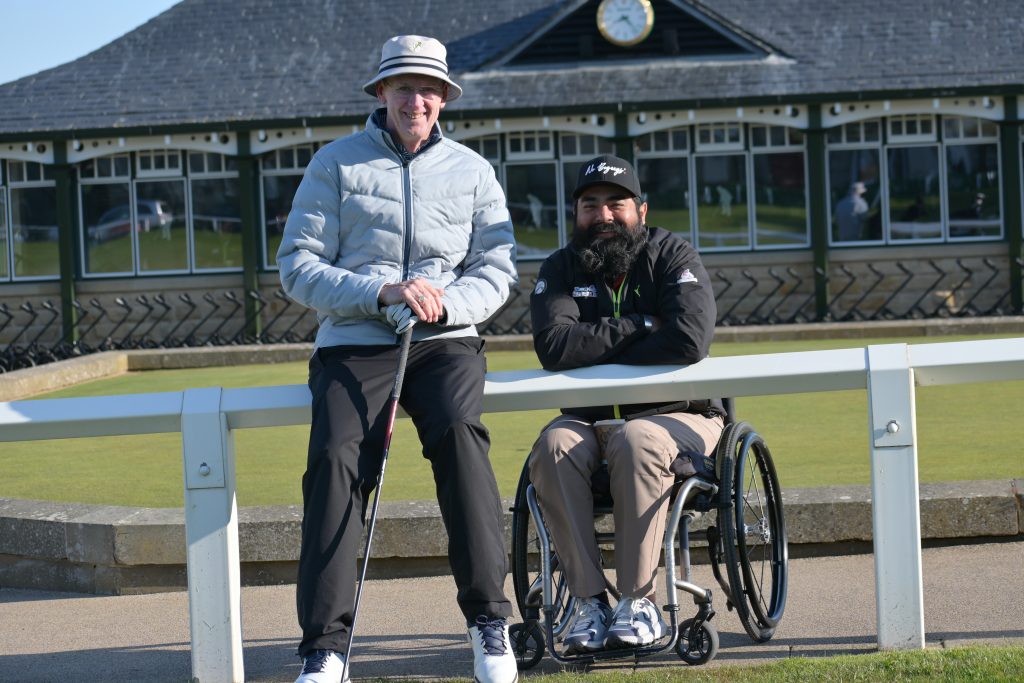
The questions of why and how might be levelled at Bennett himself. Tony started as a tour professional golfer when a young man, became a PGA professional coach, an experienced golf retailer, a national golf coach, then an educator and development specialist. He worked for 11 years for the then PGAs of Europe (now the Confederation of Professional Golf) before, in 2018, using his knowledge to become the Head of Disability and Inclusion for the International Golf Federation (the recognised international body within the Olympic and Paralympic Movement).
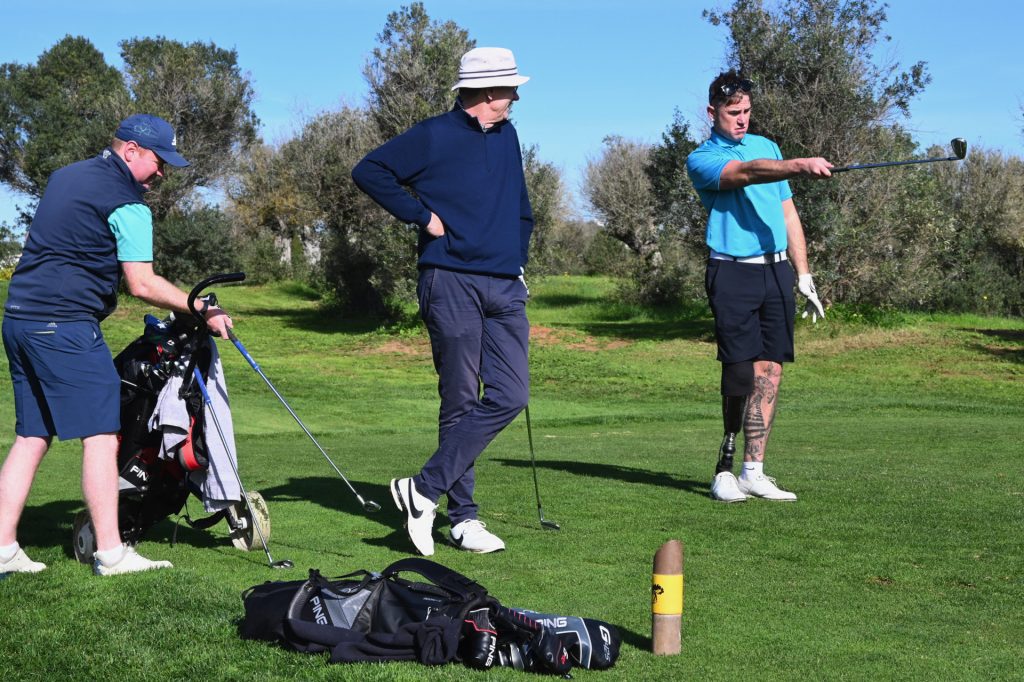
Tony and his fellow EDGA volunteers wanted to expand their knowledge and help build ‘G4D’. The idea caught Tony’s imagination and he then put in the hundreds of hours of rigour needed to complete last year a PhD (at the University of Durham) which seeks to shine a spotlight on golf for the disabled, including why it deserves greater support (this, after completing a Master of Philosophy from Birmingham University in 2013).
“I enjoy working, but it is really about the fact that I love learning,” says Tony. “I have always found myself looking at things and asking ‘why’? I wonder why they do that? What’s this for? I think an appetite for work blurs definitions of what a working day is; if the challenge is interesting, I will follow the path. If I’m working I’ll be full-on until finishing, but that’s not being a workaholic. I enjoy it. I’m also very fortunate that my family is also closely invested in golf and my EDGA work.”
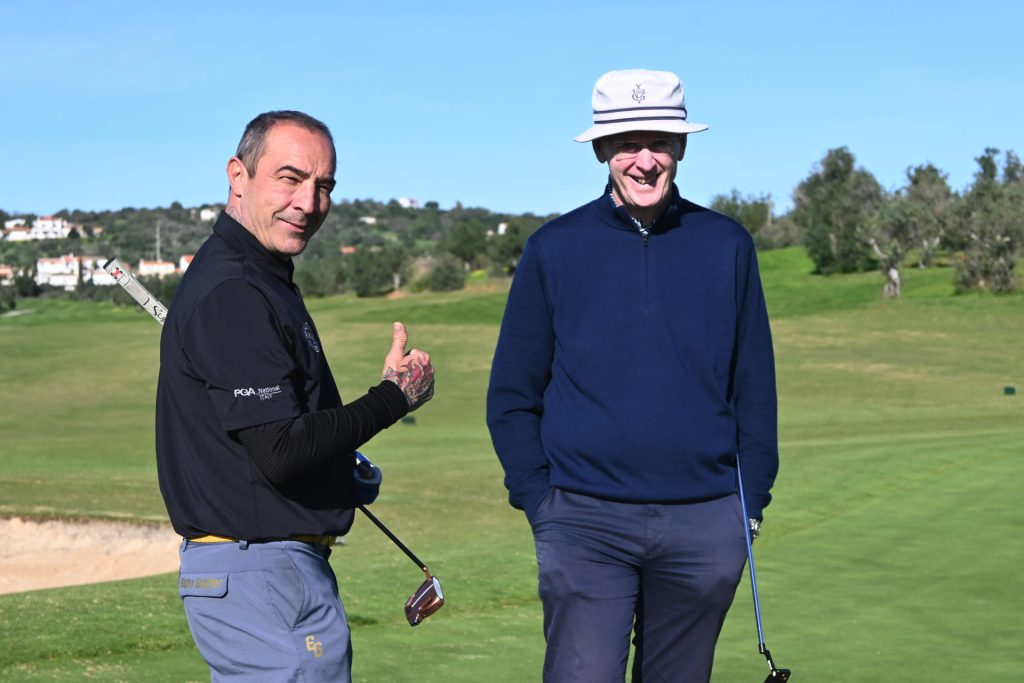
He was born and grew up in Chorley, Lancashire. He didn’t enjoy school learning but favoured learning at sport: golf, football, swimming, basketball.
“I remember I was free to use my imagination and absorb myself in the task. I can recall kicking the football against the wall and I’d be playing for England against Brazil, one moment the striker shooting at goal, a second later I’d be the ‘keeper saving the team.”
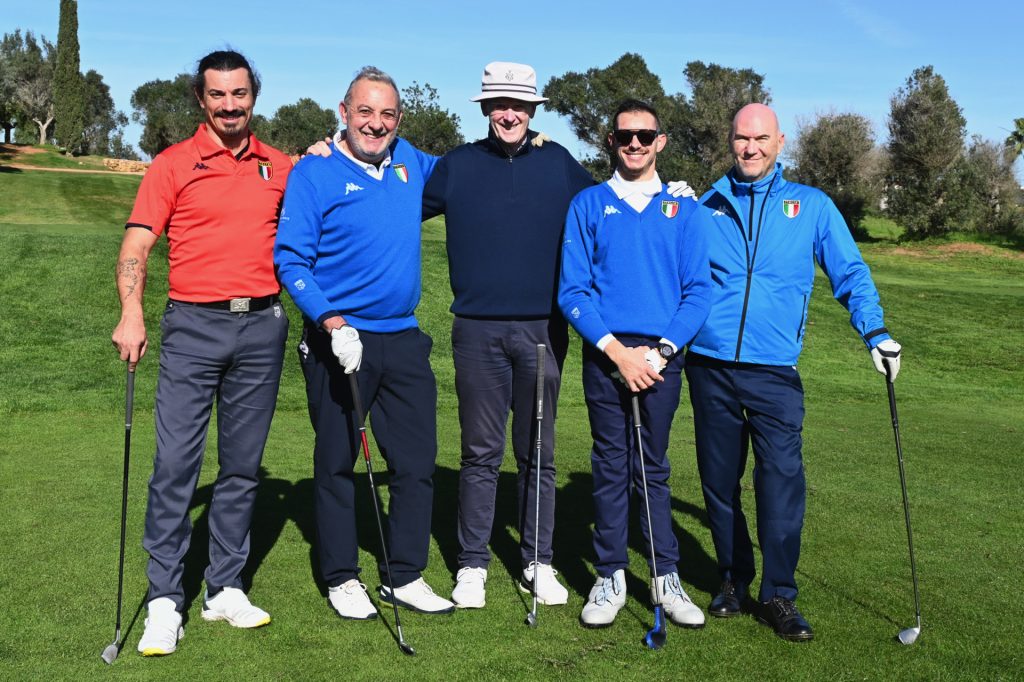
Tony’s father, Howard, was and remains, a PGA golf coach of renown (he coached among others Padraig Harrington and the Ireland team who successfully won the triple crown). He didn’t push young Tony into golf, but was thrilled when he caught the bug.
Tony says: “I was 12 years of age then. I loved having the opportunity to just go and do my own thing, in a place where I felt pretty comfortable. I was out in the open. I could just work at it and then say, look Dad, I’m having a bit of trouble hitting it left, or right, or whatever.
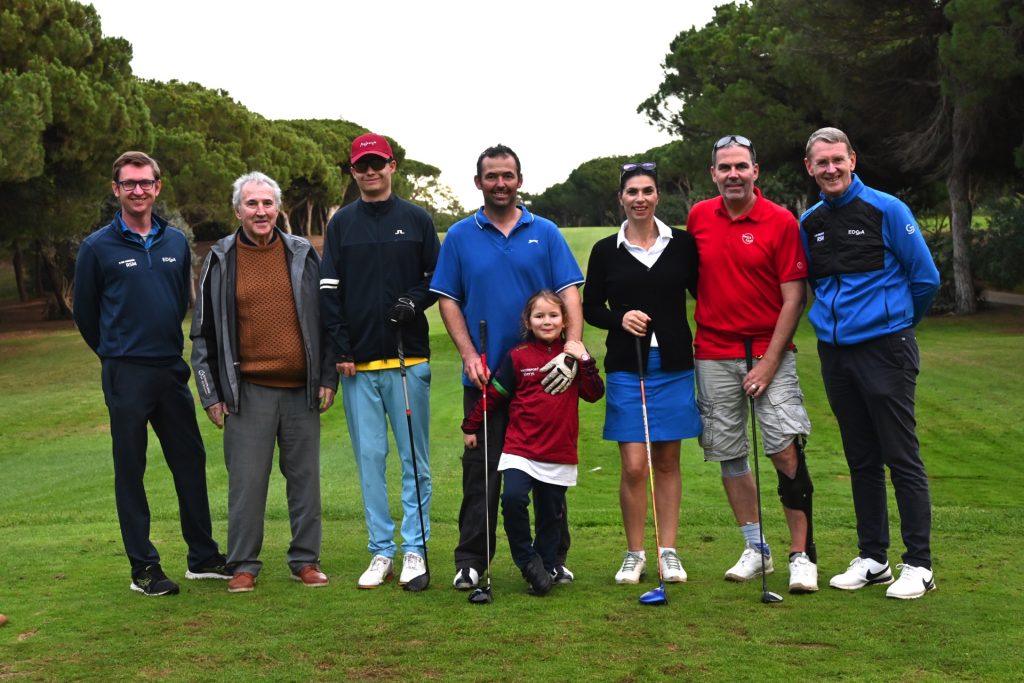
“And he’d say, well, you know, why don’t you try this and why don’t you try that? Simple advice. I would stand on the putting green for hours and hours. I’d play one ball as if it was me and another ball as Tom Weiskopf, who was one of my favourites at the time, because he was a big tall fellow like me.”
At that time, Howard mixed with other leading coaching figures who understood the need to adapt their way of communicating as teachers. Tony, therefore, was not following the school crowd but soon learning for himself, including from the network of supportive adult members at Shaw Hill Golf Club where he first developed his game.
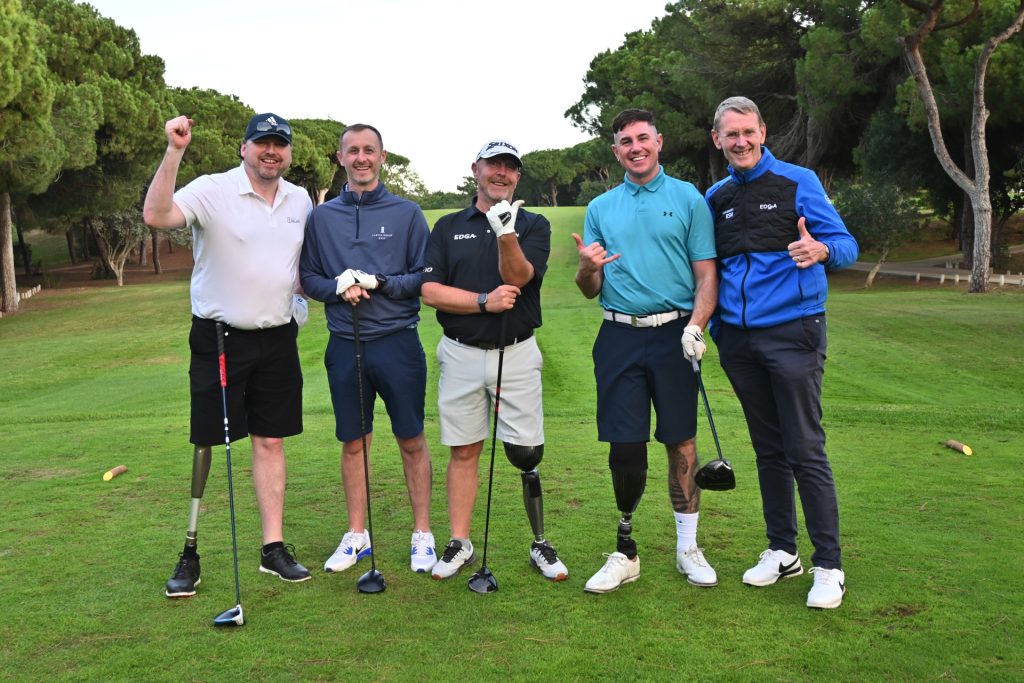
A mentor of Howard’s was the legendary coach John Jacobs, and young Tony would hear at first hand of ‘JJ’ generously giving free coaching sessions to young PGA coaches, held on freezing evenings in Blackpool on England’s west coast: Jacobs imparting the gold that would help his inheritors to become experts themselves.
Tony explains: “Everything that I know starts there with my Dad. Not necessarily because he’s given me the answers, but he’s given me the mindset to go and search for the answers. I remember clearly, before there were standard cassette tapes, there was a big cartridge tape you could put on in the car. So we never listened to the radio. We’d listen to a cartridge, somebody like Zig Zigler or Earl Nightingale from the United States, who were both master salesmen, doing a seminar on tape. I’d want to listen to Roxy Music or David Bowie, and he would have this damn tape on. But he was always learning, always looking to try and find the edge. And if you can find the edge, that’s where you get the biggest breakthroughs. That was something that I learned by osmosis.
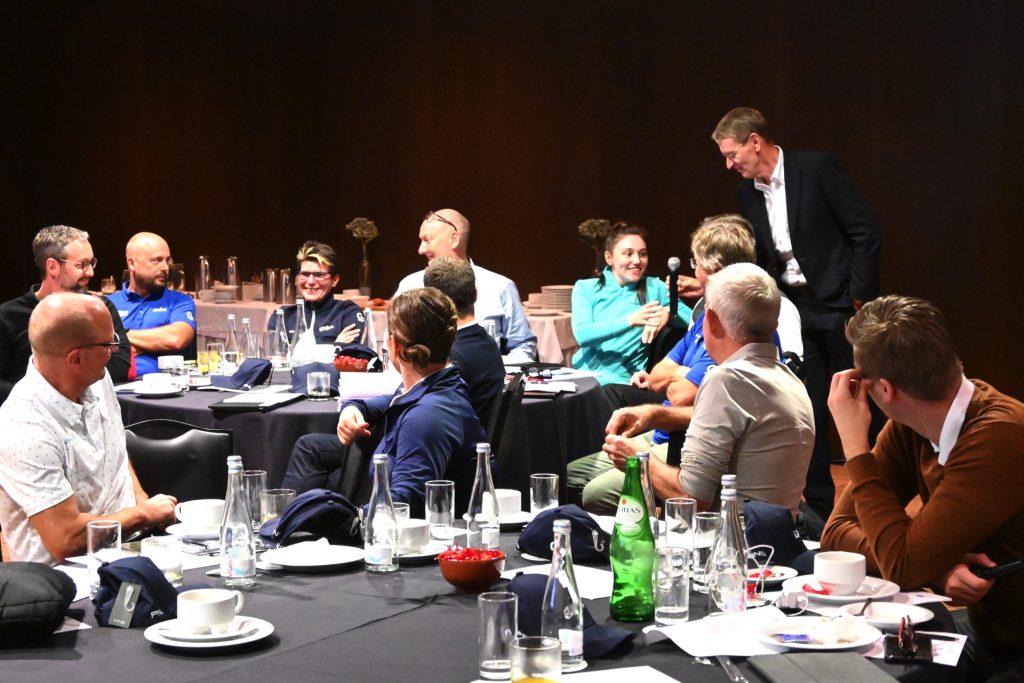
“He would then talk about some of the great coaches that he’d learned with. And later I spent time with Henry Cotton and John Jacobs, which was a privilege. But I only did that because my dad had done it, so I could pick up the phone to David Leadbetter and ask if I could come and watch him coach for a bit.
“So I think I learned the work ethic from my Dad. You know, he left school when he was 15 years of age and went to sea. He says he wasn’t the brightest crayon in the box, but by the same token, he is really street wise and had that kind of worldly smarts that you need. He learned very well.”
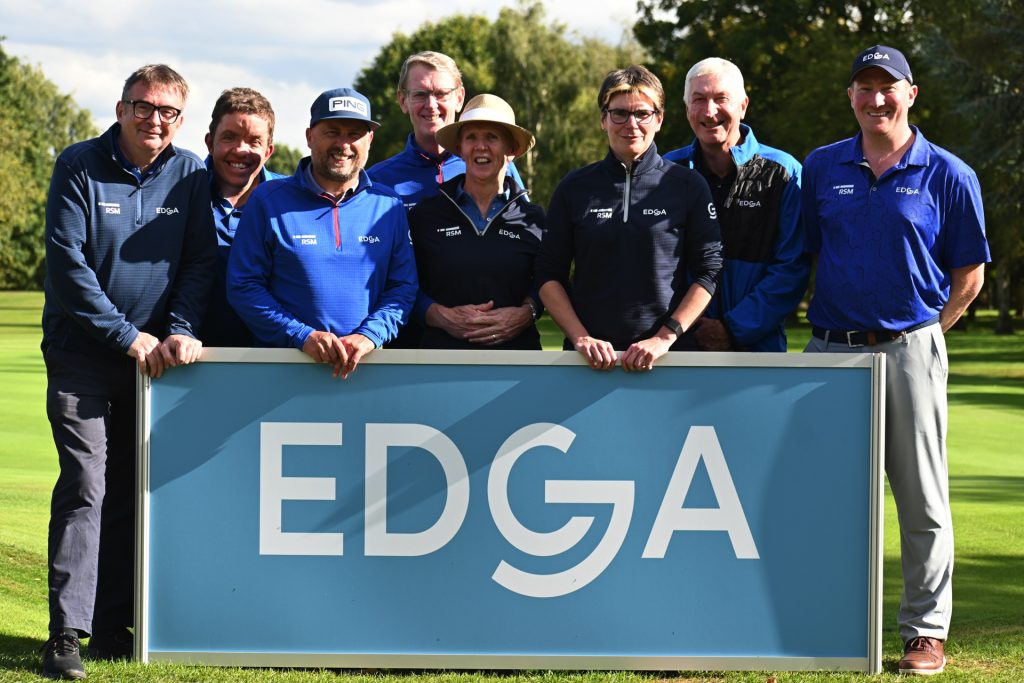
Tony says that his Mum, Sylvia, was “a great role model”.
“As a farmer’s daughter she knew what work was and that cows needed feeding and milking every day, not when she felt like it. She was practical, a brilliant reader of people, who was able to use her intelligence and commitment to become a state registered nurse for the NHS. Her standards were always high and, to coin the old fashioned phrase, if a job was worth doing, it was worth doing well.”
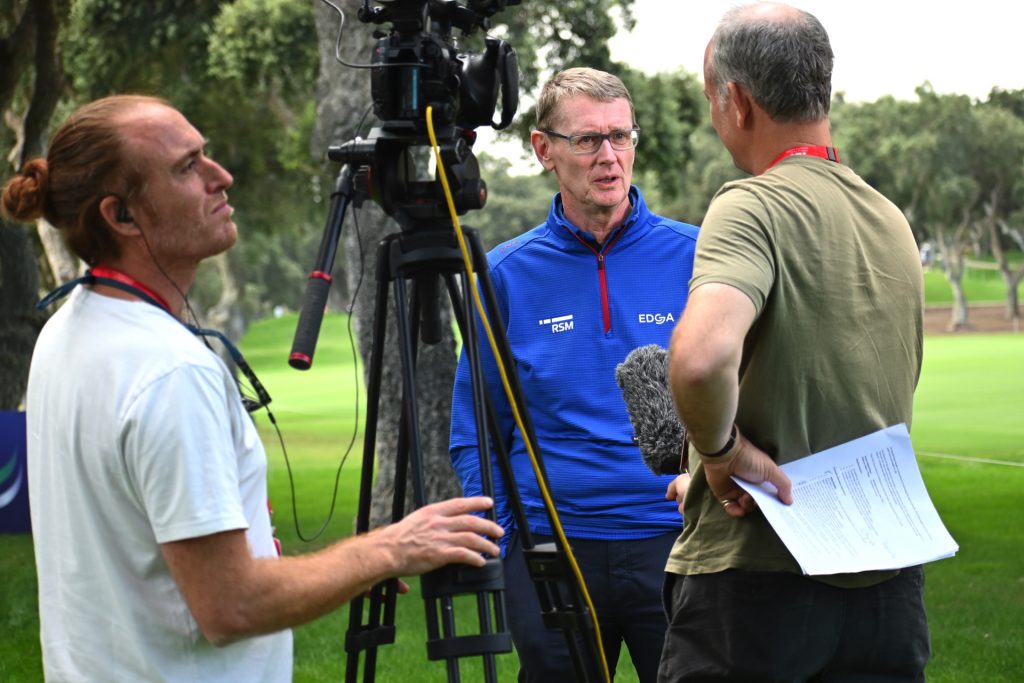
As a lad, Tony continued to pick up the valuable clues from his parents in how they ran a business at a golf club so well.
“I don’t remember what was on TV at the time, but it was about doing the books for the week and making sure that you’d got all the banking ready for Monday, and then about putting prices on new stock that would come in. This was what Sunday night was, so I realised that it wasn’t just, turn up at the shop and sell a few balls and tees.”
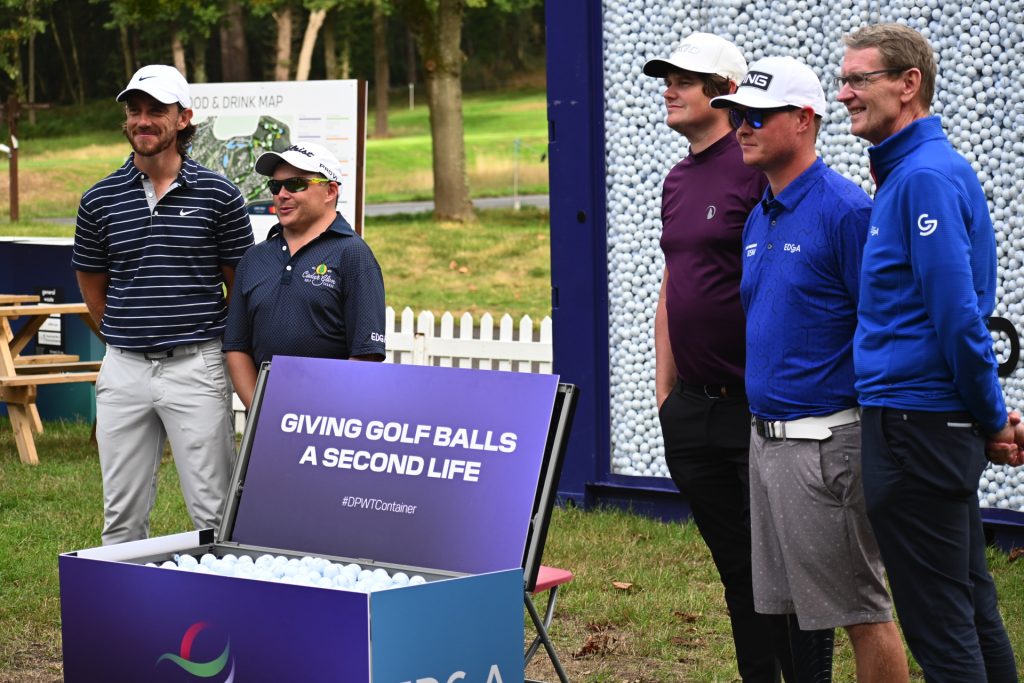
His learning of golf was successful; as a young man Tony would become good enough to play for a living for a handful of years, in the UK, Europe, and on the Sunshine Tour in South Africa. It was a tough school but Tony cites it as a rich and varied experience, from coping with the pressure of competing for money, to managing your on-the-road costs just to keep going.
All the lessons stuck. If you watch Tony walk up to the golf ball on the tee today, his is the most unobtrusive and simple of pre-shot routines before addressing the ball with a quiet confidence. He is someone who knows his trade and still plays off a 1.4 golf handicap.
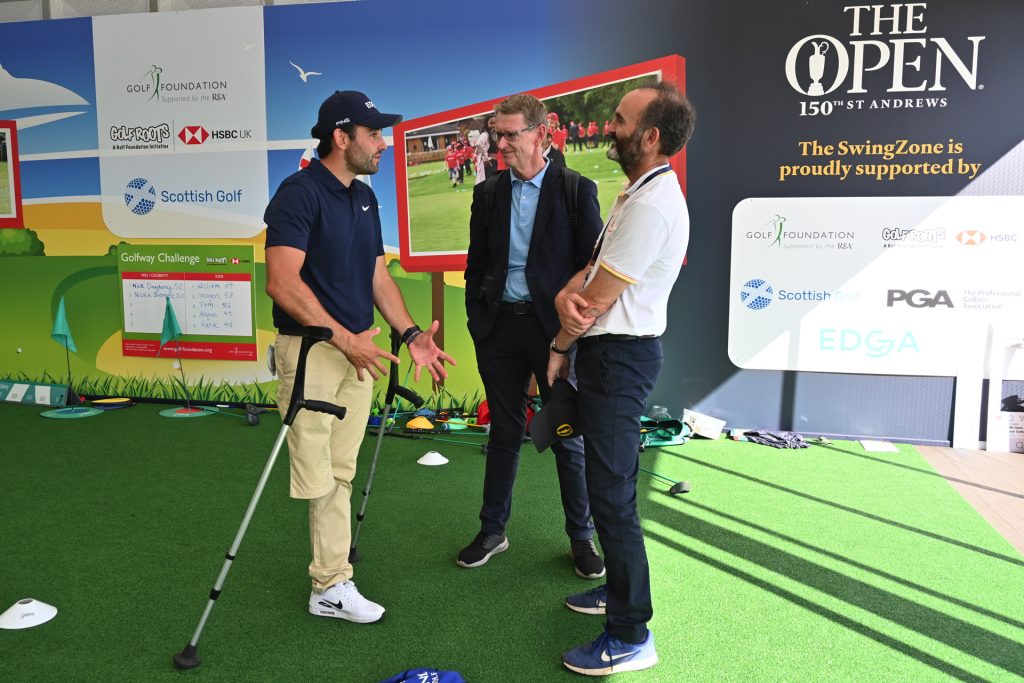
If you get to know Tony you are likely to also know his wife, Sue. Sue is much appreciated by the EDGA players as a volunteer helper at tournaments, a fixer of problems and sometime player’s confidante, but her formal role is as the tournament photographer, taking many a memorable picture as she patrols the course before spending hours poring over the shots to find the best pictures to send to golf’s media and, as importantly, to the competitors and their families.
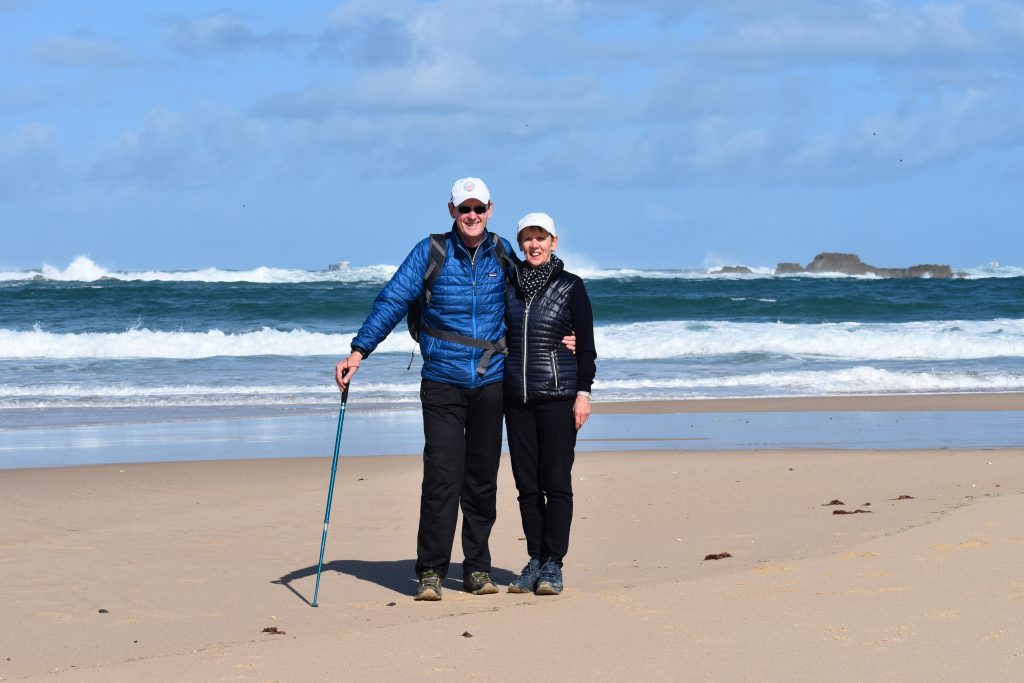
The Bennetts were a partnership from the start as they ran the professional shop at first Leyland Golf Club in Lancashire for two years. Leyland had 1,000 members, many from the famous car manufacturing plant, and but for Tony turning up to start work in a car sponsored by Toyota, he got on well there. The Bennetts then spent 11 years at Newark Golf Club in central England: happy days for the family including their growing young son, Scott. Sue’s own early background in sales and merchandising was crucial and they could draw on advice from Howard and Sylvia. Together, they created a culture of excellent customer service which inspired loyalty, rather than relying on selling through discount or credit, as was the way then at many clubs. Thirty-odd years ago, visitors to the shop would find themselves being offered a coffee and a chocolate while they talked golf; they would receive a card on their birthday from the pro shop team with a voucher for a free lesson.
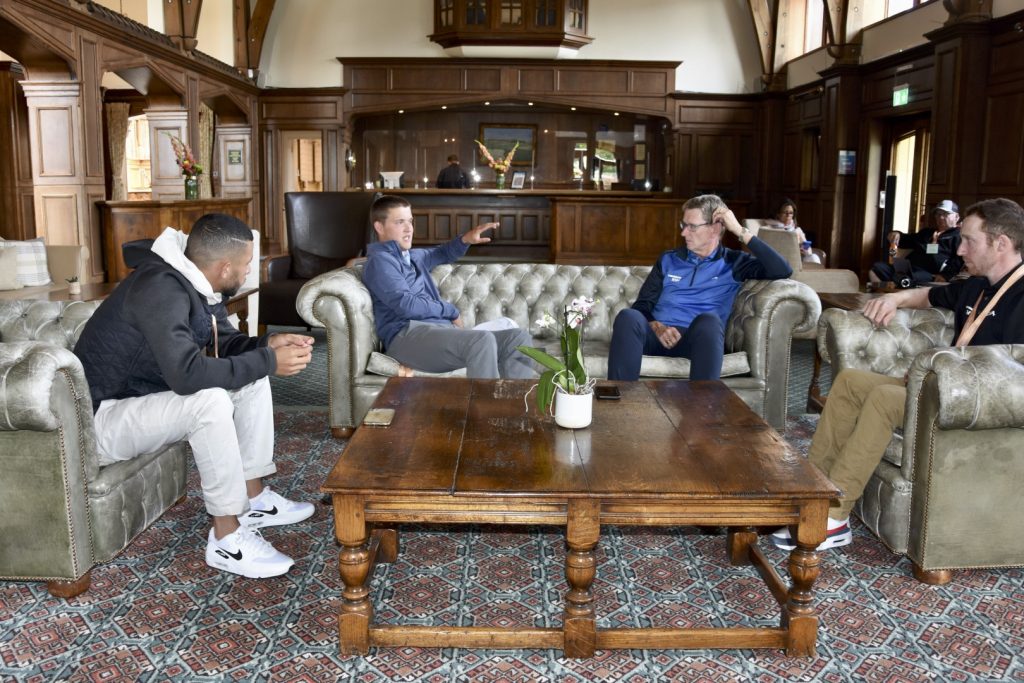
As Tony’s skill-set changed gradually from simply coaching the swing to learning to coach people, the second half of the 1990s brought wider opportunity. His family made the life-changing move from England to Portugal. Working as the national coach to the Portuguese Golf Federation, Bennett would lead the coaching set up. After his time with the Federation, Tony and Sue would set up six golf academies across the country. His interest in developing people then led to him being engaged as Director of Education and Membership for the PGAs of Europe between 2007 and 2018.
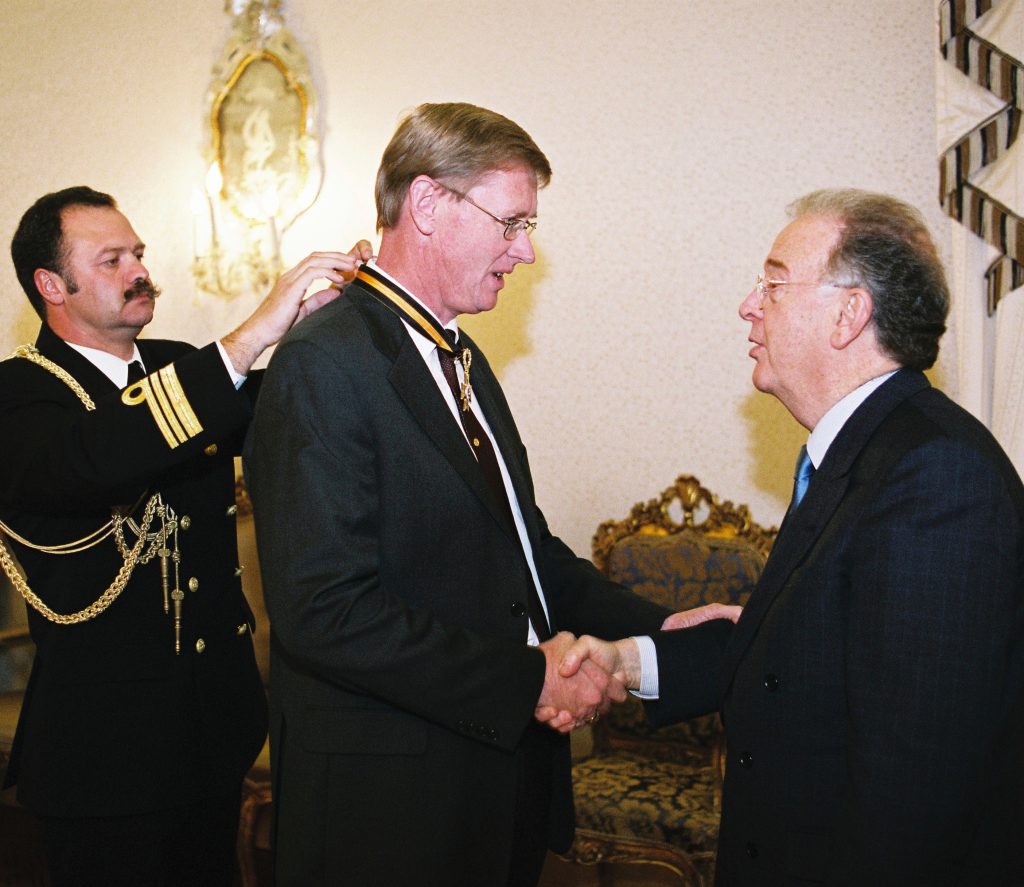
In 2013, Tony was asked to offer advice to EDGA (then called the European Disabled Golf Association), as the organisation was struggling in its mission. Representing just eight national federations and four individual disability organisations, new ideas were needed quickly.
Tony agreed to give his honest feedback. This combined with the years of experience and learning of the then general secretary Pieter van Duijn, and the pair discussed where the association was and how Tony saw the future during a two-hour stroll together around Faro, in the Algarve, followed by a warm handshake. Tony was able to create a ‘one pager’ that would change EDGA from a collection of very worthy but disparate international voices to a far stronger and bigger structure, with a clearer mission, while developing the means to succeed.
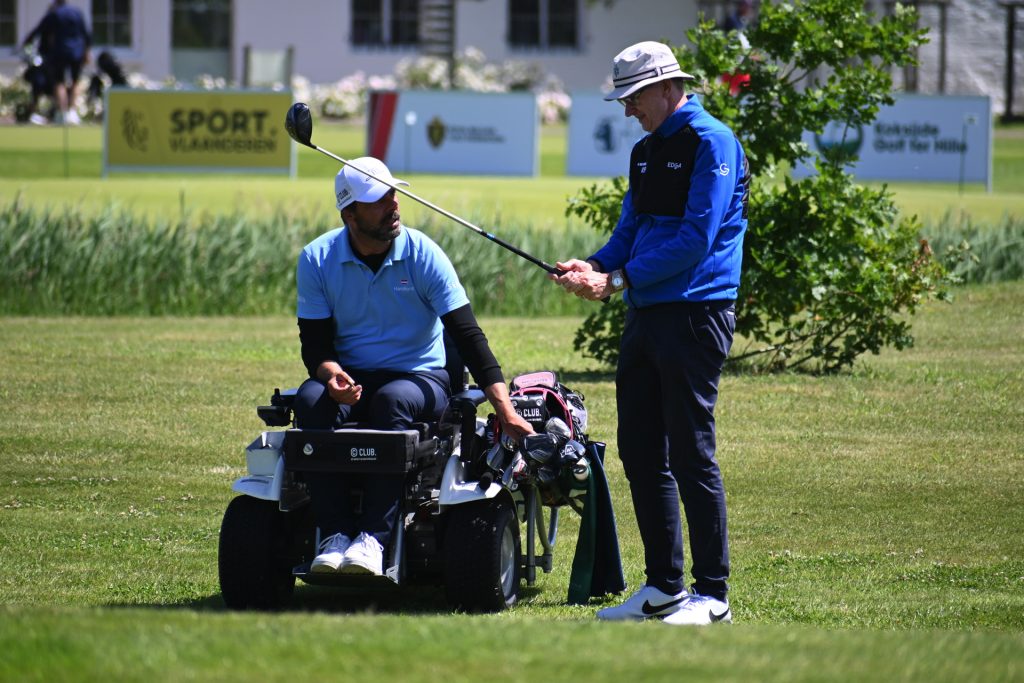
Once the strategy was agreed, Tony set about recruiting his volunteers, amongst which were his wife Sue and son Scott along with close friends who were happy to give some of their time to start the ball rolling. What followed was four years of struggle, using personal favours and asking for ‘mate’s rates’.
Recent achievements from EDGA include: setting up the Ranking for Golfers with a disability (R4GD) in 2014 which became the World Ranking in 2019, seen as vital to advance competition at all levels of G4D; working with the European Tour Group on the creation of the G4D Tour, where the best players get to play eight events in 2023 in the same weeks and on the same courses as their counterparts on the DP World Tour; while this May, The R&A and its partners launch the first ever G4D Open, a championship in the imprint of the legendary Open Championship itself.
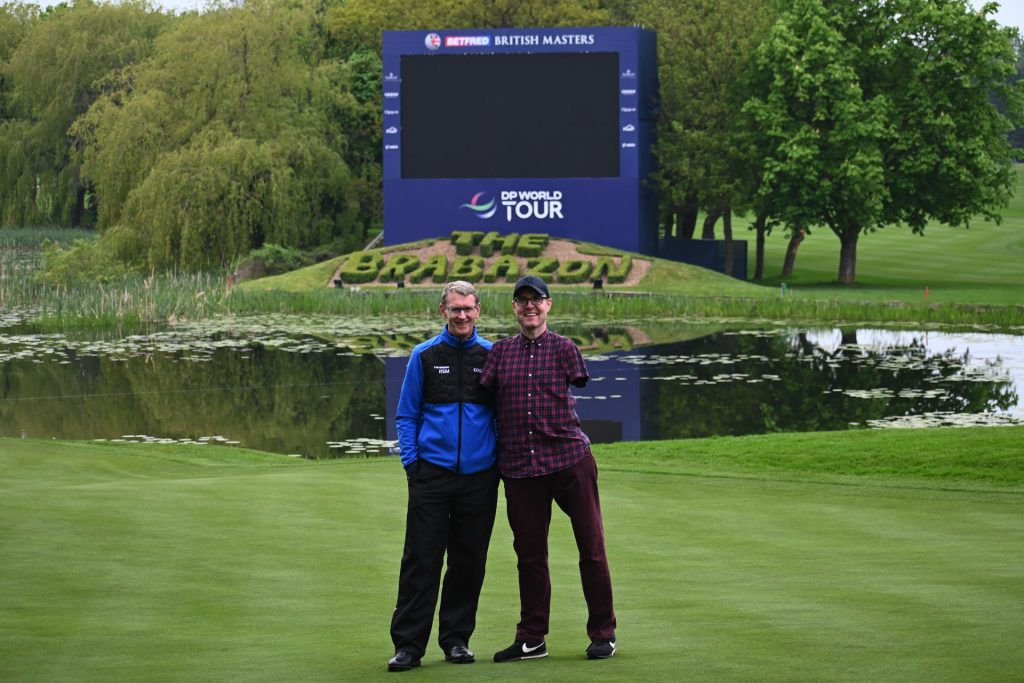
While these tournaments are being played out this summer, there will be plenty of sessions internationally to train volunteers and coaches to deliver golf; while expert volunteers in EDGA’s eligibility team are able to classify more players across the impairment spectrum, so more players can join in with the 100-plus EDGA-approved or supported events. Meanwhile, EDGA’s team has gradually created another big change for golf. The R&A and the USGA’s latest update to the Rules of Golf includes, for the first time, the modified Rules for players with disabilities being fully incorporated into the playing rules, without the need to adopt a local rule.
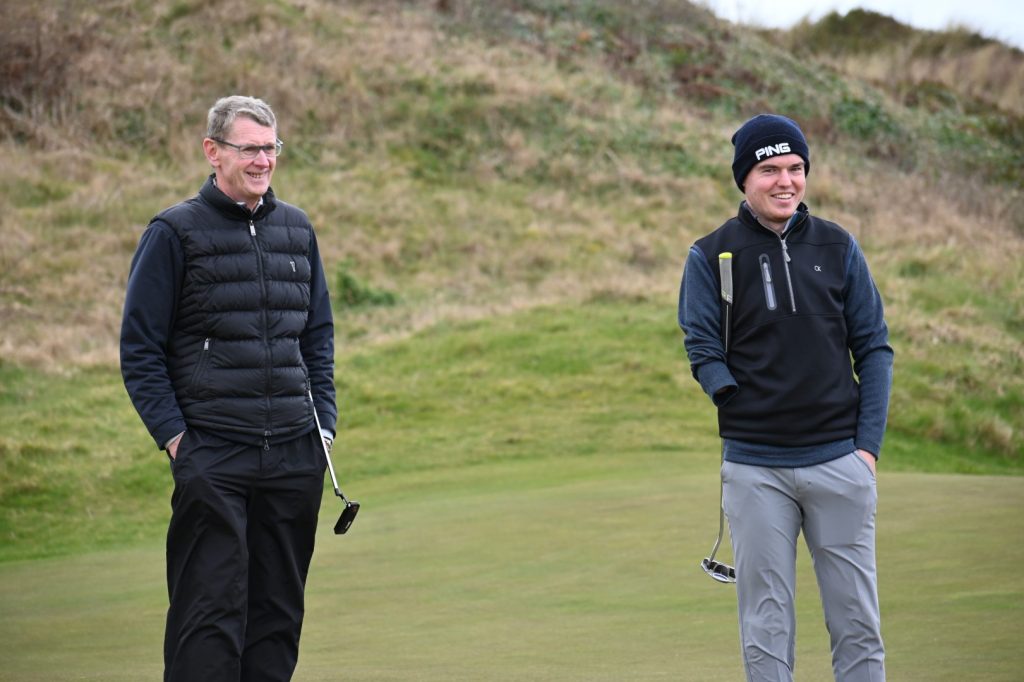
Tony says: “To succeed further, we are looking to change the perception of golf that many people have. ‘Golf for the disabled’ allows us to be able to see a very different group of people playing the game. Normally you would expect to see somebody walking the golf course and playing on two feet. You wouldn’t expect to see somebody riding in a buggy who has got a spinal lesion and playing golf. You just wouldn’t expect to see it, or somebody playing with one arm or playing with a prosthetic leg or somebody who’s blind. You wouldn’t expect to see these things.
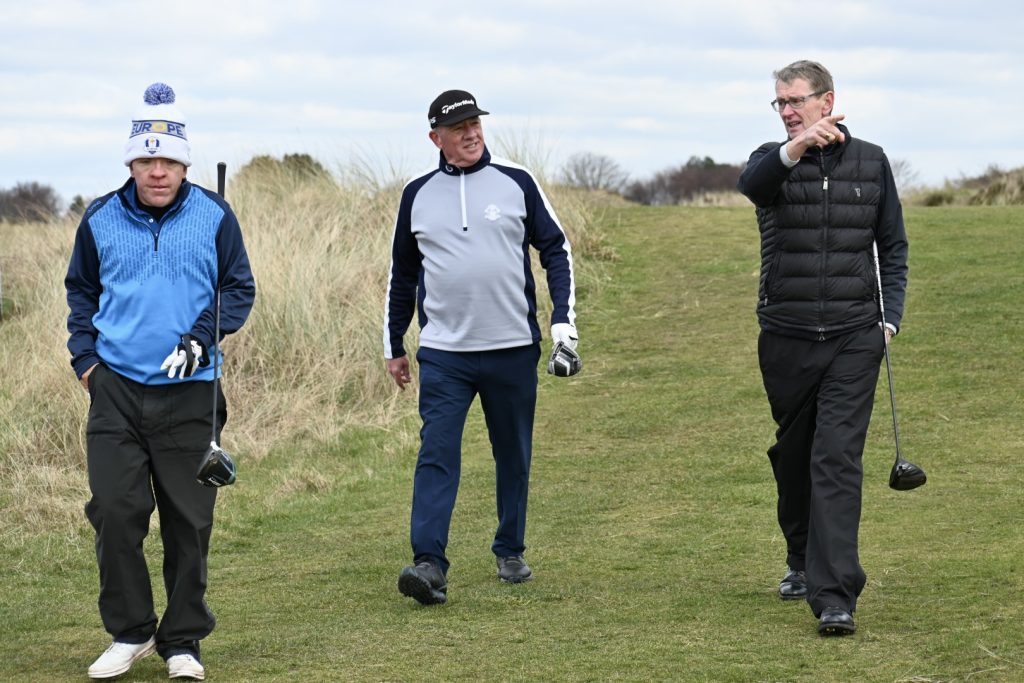
“If you look at it, you’d have to say that if a golf club really wants to thrive, it has to look like the people within its vicinity. We know that 15% of the world is disabled. We’ve got statistics for 147 countries. Wherever you are, if you took a 15 mile radius trip from around your local golf course, it would be a safe bet to say somewhere between 10 and 15% of that population is disabled. So then you look at your local golf course and say, well, are 10 to 15% of the local players disabled? The chance is pretty good that they’re not, because they don’t realise that they can play.”
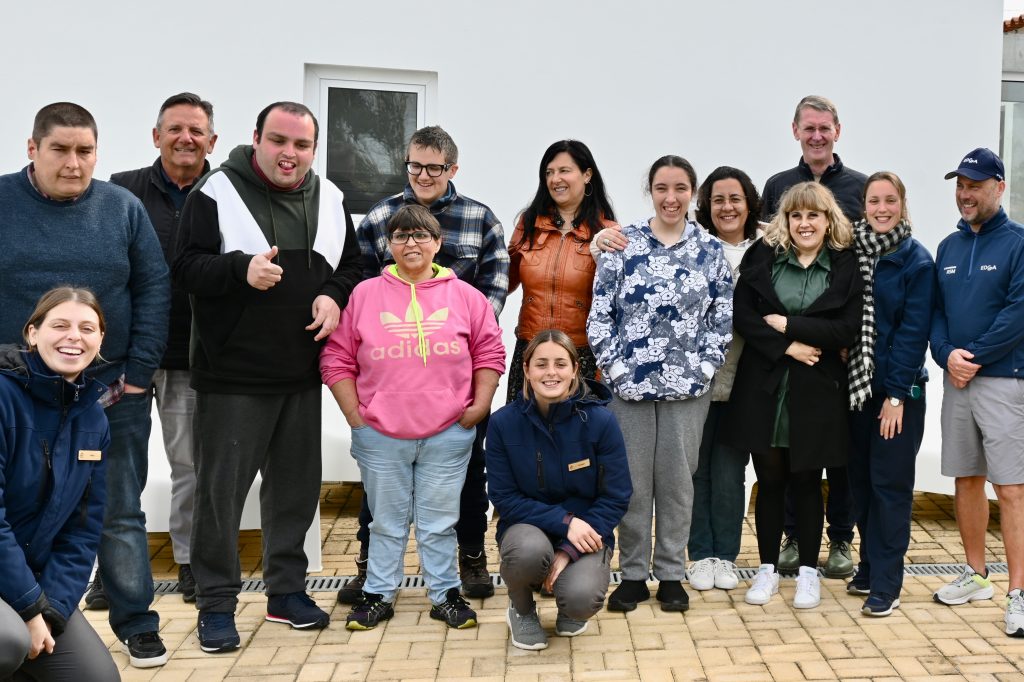
Golf, of course, is a non-contact sport: the stationary ball suits many players with a disability very well, as they create their own way to hit the ball. Meanwhile, EDGA’s coaching development is all about giving PGA coaches the tools to better teach the swing to new players. Tony believes this all offers a great choice to families considering the game.
“The nice thing about the game of golf is that, for most parents, their kid will play or do the thing that their parents do. So if I was a musician, there’s a pretty good chance that my son would be playing a musical instrument. Well, in disability terms, you can flip that because now for somebody who’s got a disability, the range of sporting options goes from being really wide to being really narrow. And so now I, as the parent, have got to look at the sport that my son, or my daughter can play. So I might be attracted to the sport of golf myself because my children can play the sport.”
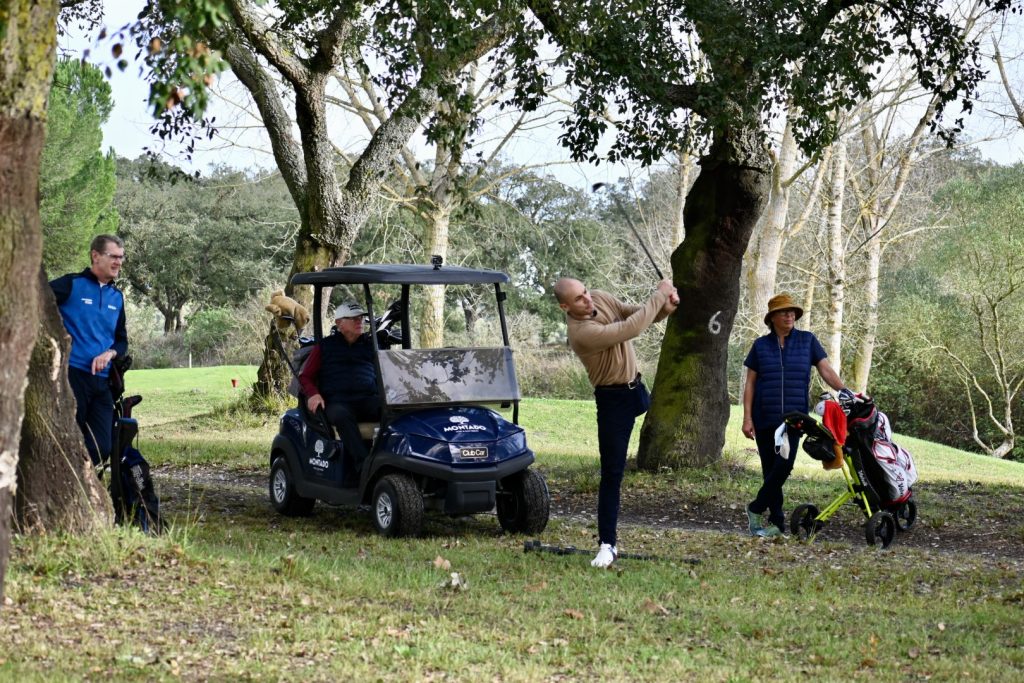
One of Tony’s great pleasures as President of EDGA is to engage with so many players with a disability, who apart from sharing unique stories often use the phrase ‘golfers first’, that is, players who refuse to be defined by their disability. He admires the mindset.
“They just do their thing. They don’t complain, they just find a solution. That’s what I admire, and that goes for everybody. I’ve always admired the player that says to me, you know, I’ve just gone out there and I’ve had 38 putts. But then they go straight to the putting green and try to figure it out. They’re doing what’s necessary to become good at whatever it is that they do. And I think we have a lot of those players within EDGA, but I also think we’ve got a lot of good volunteers, really good volunteers. And so, yes, it’s an absolute pleasure to spend time around good people. Ten to 15 years ago I said, look, I’ve spent a lot of time around some people that really, honestly, I didn’t really care whether I ever saw them again, because they’ve got this kind of entitled attitude, you know?”
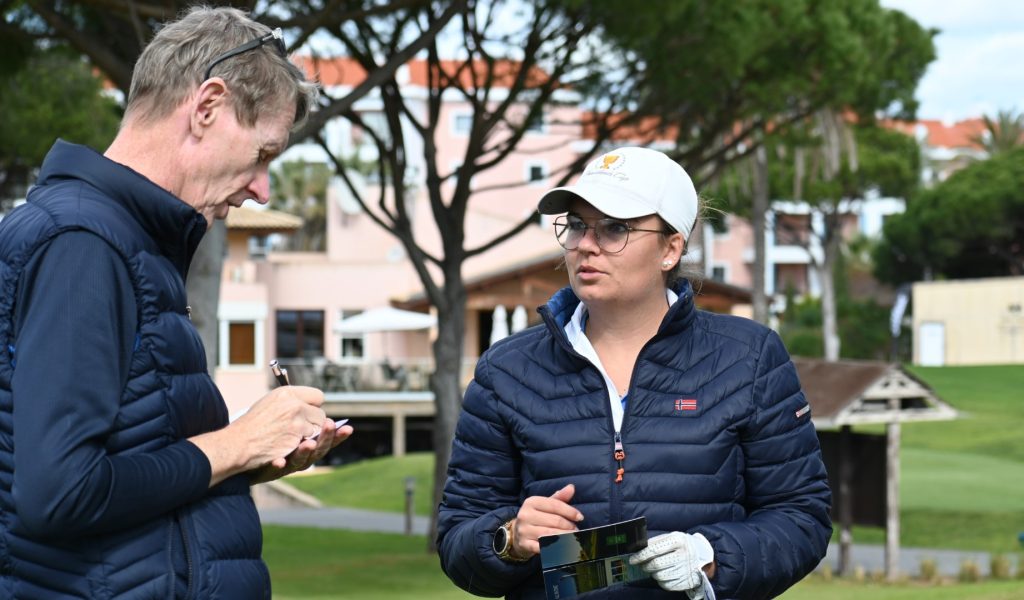
Continuing on the theme of volunteers, Tony says: “We just make sure that we have a great group of people, all very different thinkers, and we’ve got people that are really, top people within their profession. And you have some unsung heroes too. And they do it in this low key manner, which is sort of underneath the radar. Brilliant.
“There’s a lot of problems that we’ve still got to solve; we’re still not quite there with some of them, but we’ll get there. We will get there because it’s interesting and because of that we’ll continue to dig and pull and try and figure a way under, round, through, over that problem, and you’ll get a solution for it.”
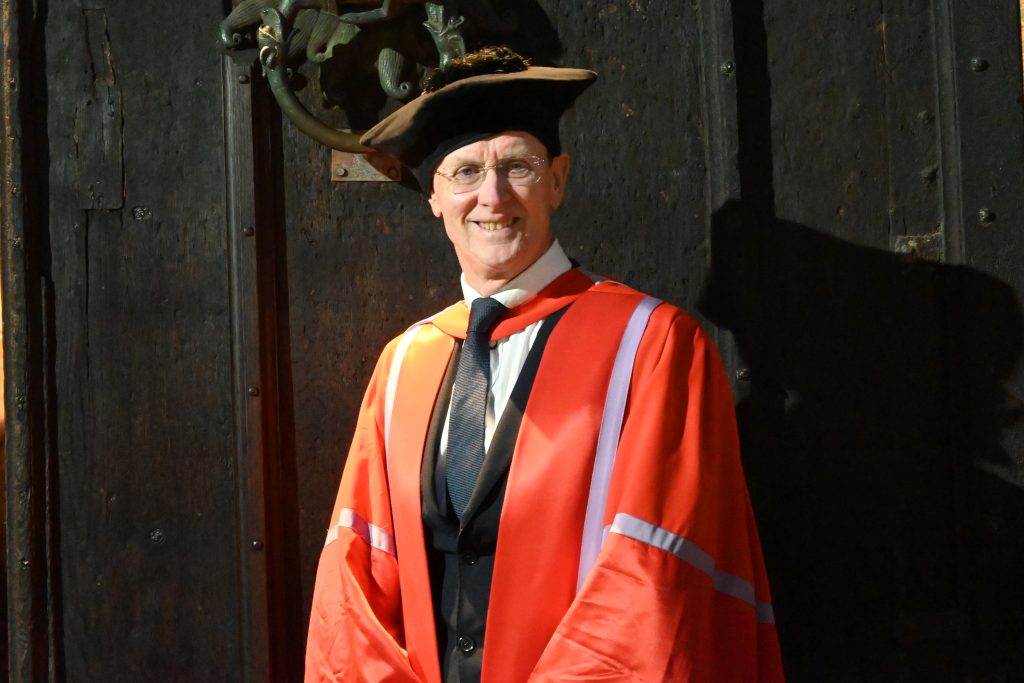
It has been an incredibly busy two or three years for Tony Bennett, and he sadly lost his Mum Sylvia in 2019. To complete the PhD became an endurance test, but as he’d mentioned it to Mum, he wanted to see it through if possible.
“It’s too fresh at the minute to know whether it was satisfying or not. But by the same token, I’ve learned a lot and I’ve met some really good people. My supervisor, Professor Brett Smith, I can’t give him enough credit, an absolutely brilliant man. Just great to spend time with and great to lock horns with from a learning perspective, to ask those tough questions. Then to receive that tough direct feedback as well.”
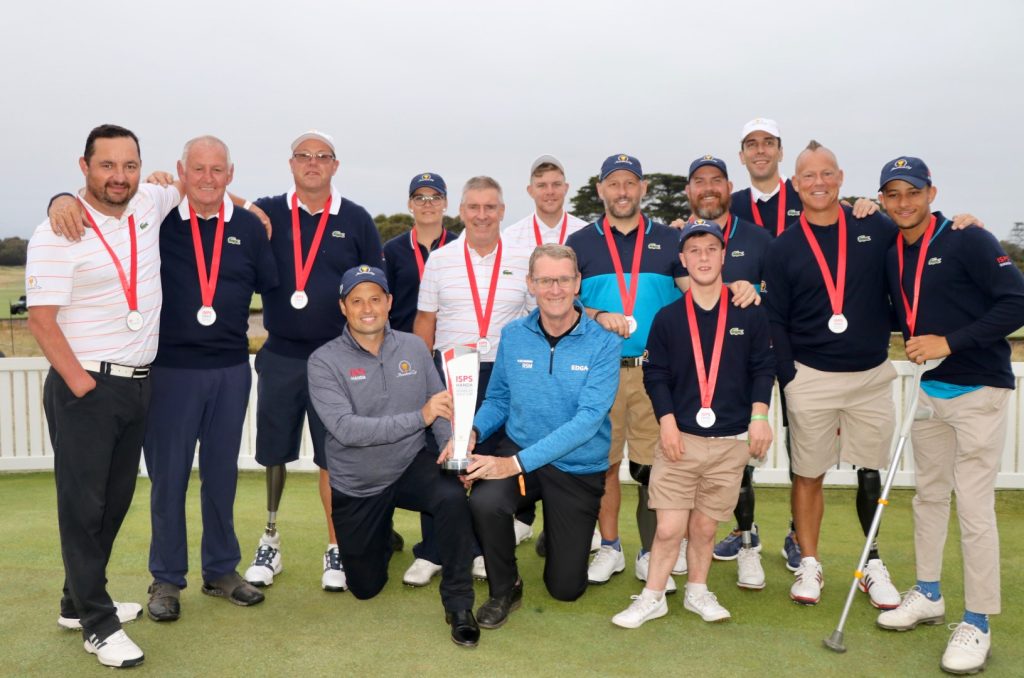
EDGA is expanding now as its influence grows, but the volunteers remain key. The only favouritism he might show is always ensuring that his favourite volunteer Sue is keeping well fed and hydrated so she can keep on taking great pictures on the very long tournament days.
“Well, if it wasn’t for Sue, I couldn’t have done anything that I’ve done really, and it’s through spending time with Sue. I’ve been fortunate to be able to do that for as many years as I have. If she wasn’t involved in everything that we do, then I wouldn’t do it – simple as that. That’s where I get most of my joy.
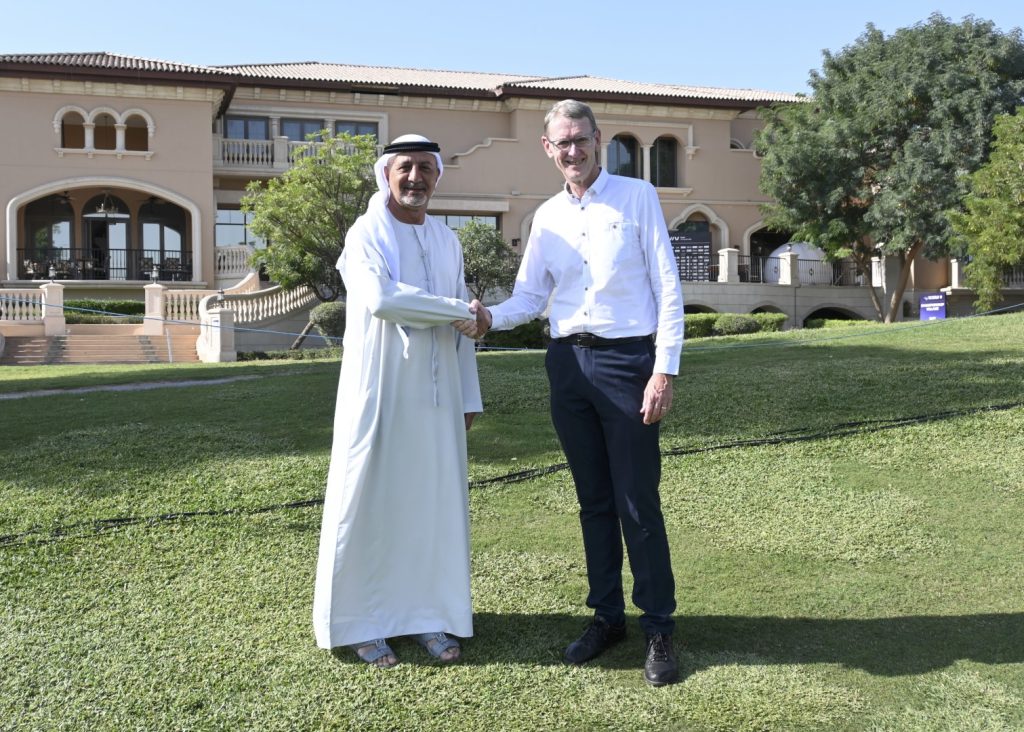
“But she challenges me. She asks more questions than anybody else I’ve ever known about anything. She’s just interested in everything. So between us, we’re interested in everything!”
Son Scott is a chip-off the old block, permanently curious like Tony, a perfectionist like Sue. “Scott is as sharp as a knife when it comes to the big picture, marketing and branding, but at the micro level he values relationships above all.”
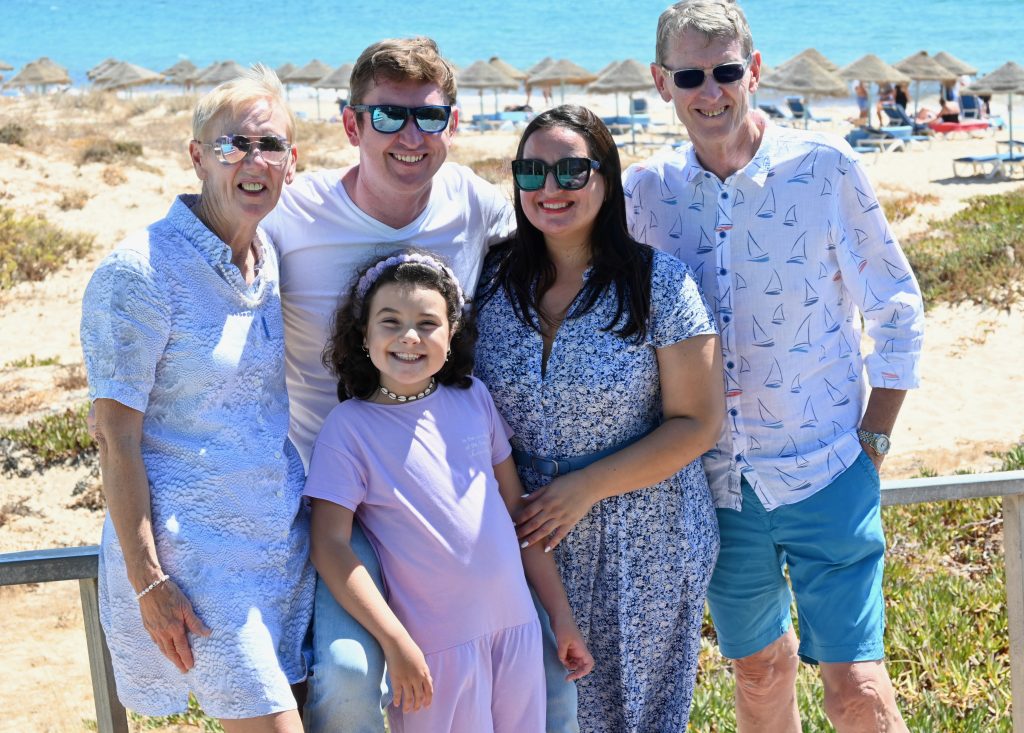
The one relationship that Scott holds closest is that with his wife Rita who he married last year, and together they are making their way as a family, bringing up Margarida who keeps testing Tony and Sue’s Portuguese.
And still with those questions…
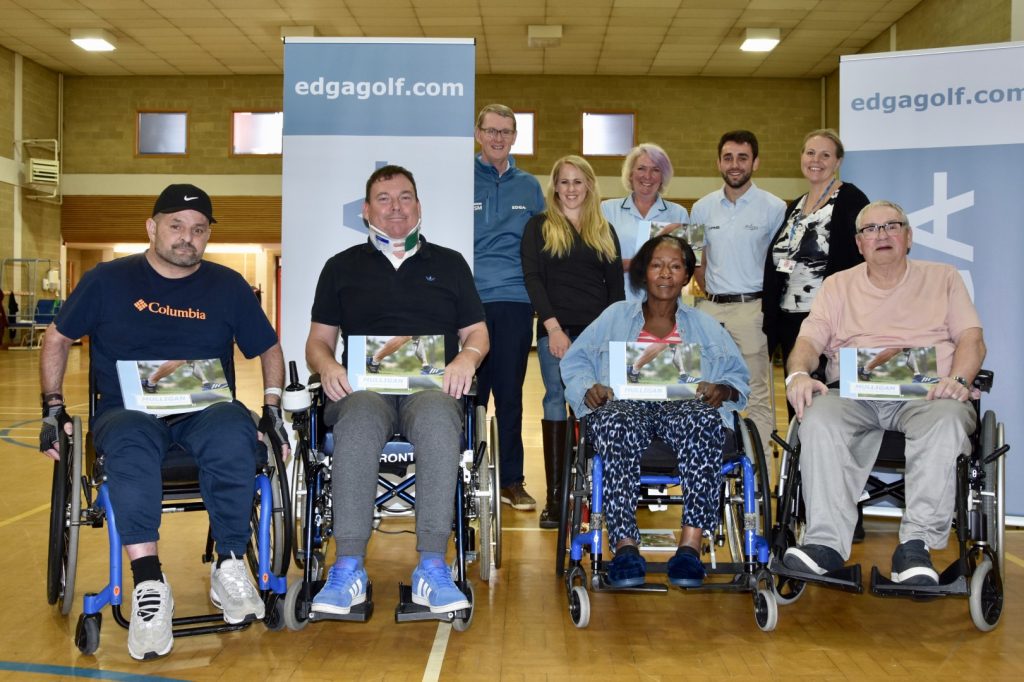
“It’s very rare that we go somewhere and don’t say, did you see that, what about this? How could we apply that? How could we do this? So by far, Sue’s my favourite EDGA volunteer. But look, I have got lots of really good people around me. The most important thing that I think you can ever do is surround yourself with good people. People that aren’t pretentious in any way. Spending your time around people that are energy givers, not energy sappers.”
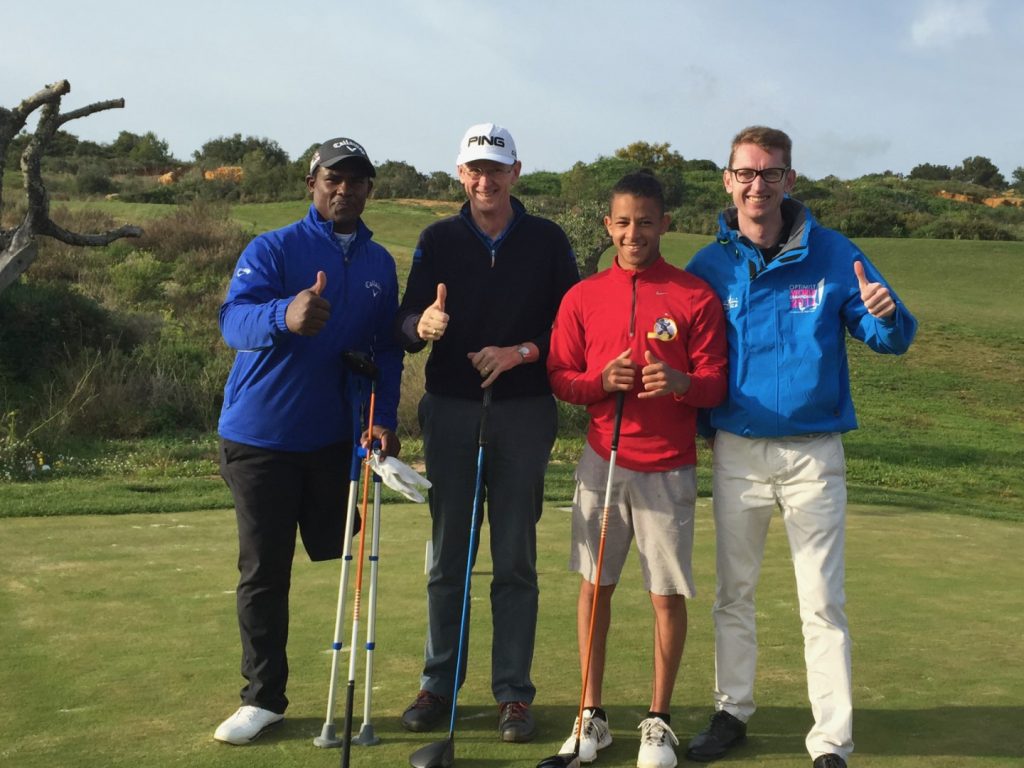
The ‘how’ and the ‘why’ have been answered. Now it is about continuing to deal with the knotty questions that G4D continues to ask. Having finished the PhD, and just edited his Dad’s memoir on coaching, Tony can devote more thinking time to finding ways to solve these issues and we wonder if he will at last get time to improve on that 1.4 handicap? What does he have to do? Will he beat Tom Weiskopf next time? In golfing terms he faces more questions, and they can be the toughest to answer.
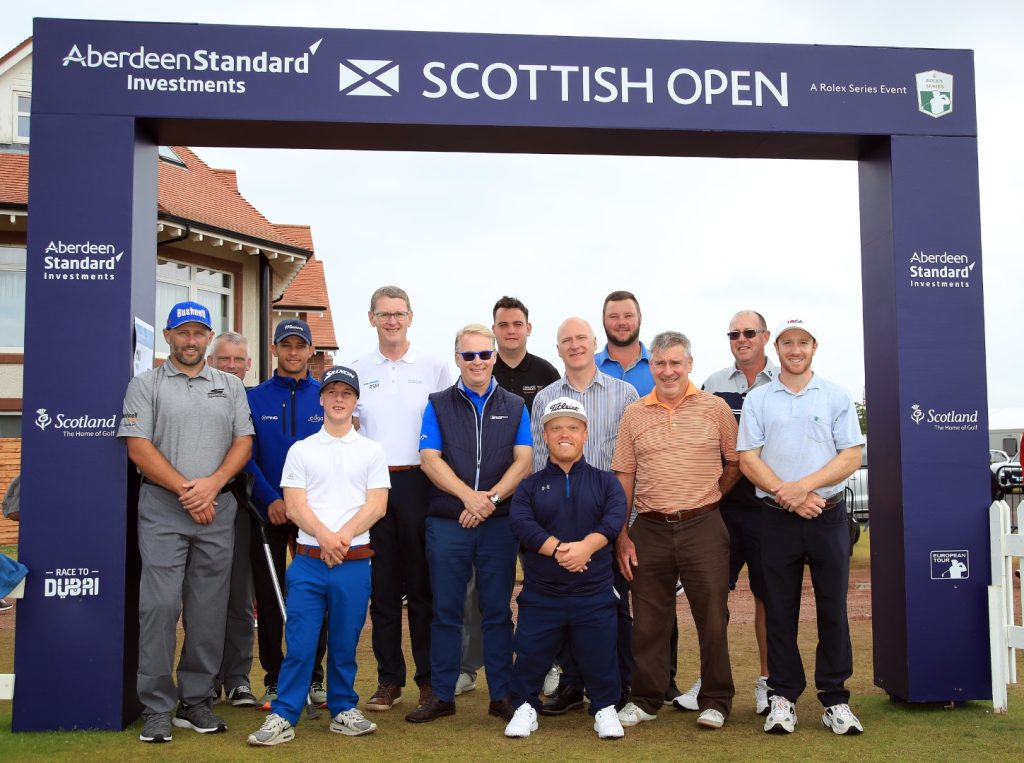
NB: When using any EDGA media, please comply with our copyright conditions


